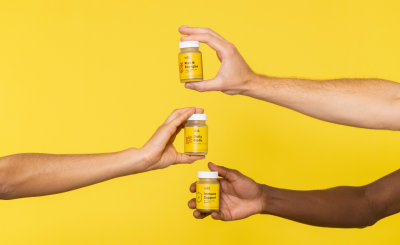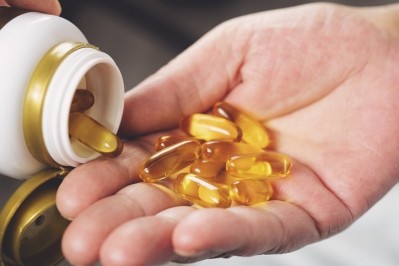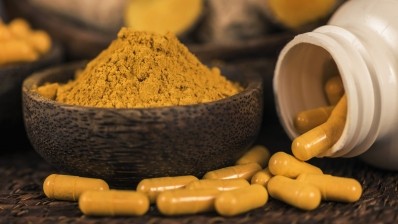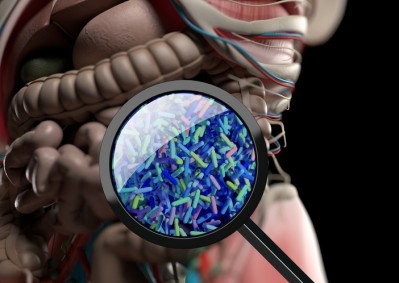Multivits, omega-3, probiotics & vit D achieves ‘modest’ effects in warding off COVID-19: Study

Analysis of almost 500,000 users of a COVID-19 Symptom Study app found women taking probiotics, omega-3 fatty acids, multivitamins or vitamin D was linked to a lower infection risk by 14%, 12%, 13% and 9%, respectively, after accounting for other factors.
No such effects were noted among those taking vitamin C, zinc, or garlic supplements nor were noted in male subjects.
“We know that micronutrients including vitamin D are essential for a healthy functioning immune system. This, in turn, is key to prevention of, and recovery from, infections,” explains Professor Sumantra Ray, Executive Director, NNEdPro Global Centre for Nutrition and Health, which co-owns the journal.
"But to date, there is little convincing evidence that taking nutritional supplements has any therapeutic value beyond maintaining the body's normal immune response."
"What's more, this study wasn't primarily designed to answer questions about the role of nutritional supplements in COVID-19.
“This is still an emerging area of research that warrants further rigorous study before firm conclusions can be drawn about whether specific nutritional supplements might lessen the risk of COVID-19 infection," Professor Ray adds.
Modest effects…
The study drew a detailed response from Professor Kevin McConway, Emeritus Professor of Applied Statistics at The Open University, who makes a point about the 14% risk reduction for probiotics.
“The title of the research paper (“Modest effects…”) makes it clear that the researchers aren’t claiming a huge effect,” he says
“The largest reduction in risk that they report is for taking probiotics, where they say that the risk of infection is reduced by 14%.
“Actually that figure is from the analysis where only a few (important) adjustments were made to allow for possible confounders – in the analysis that was fully adjusted, the reductions in risk were 9% for probiotics, 10% for omega-3 fatty acids, 12% for multivitamins and 8% for vitamin D, all rather less than for the analysis with fewer adjustments for possible confounders.”
Professor McConway goes onto highlight the breadth of the study spans the first pandemic wave of 2020 and uses data from the study itself and from the ONS infection survey data on antibodies.
A reasonable estimate of about 7% of people who were not taking supplements would have been infected, he adds.
“The most optimistic estimate from the study of the reduction in risk associated with a supplement (for probiotics, without full adjustment for confounders) would reduce that risk to about 6%, and for reasons I’ve given, we can’t know whether that reduction is actually caused by the supplement use or by something else.
“The other estimated risk reductions in the new study wouldn’t even get the risk down as low as 6%,” Professor McConway points out.
Study details
Drawing upon data submitted by 445 850 subscribers of the app in the UK (n=372 720), the USA (n=45 757) and Sweden (n=27 373), the app initially captured location, age and core health risk factors.
Later, subscribers were asked to provide daily updates on symptoms, coronavirus test results, and healthcare. People without obvious symptoms were also encouraged to use it.
The research team, primarily from King's College London, looked at data given by 372,720 UK subscribers about dietary supplement use in May, June, and July 2020 during the first pandemic wave and any coronavirus swab test results.
Between May and July, the team recorded 175,652 UK subscribers that regularly took dietary supplements with 197,068 didn't.
Around two thirds (67%) were women and over half were overweight (BMI of 27) and a total of 23,521 people tested positive for SARS-CoV-2 and 349,199 tested negative between May and July.
Despite some differences, the same overall patterns were mirrored in both the US (45,757) and Swedish (27,373) subscribers.
The equivalent figures for the US and Sweden were a reduced risk of 18% and 37%, respectively for probiotics; 21% and 16%, respectively, for omega-3 fatty acids; 12% and 22%, respectively for multivitamins; and 24% and 19%, respectively, for vitamin D supplements.
As the research team and Professor McConway point out the research was an observational study, and as such, cannot establish cause.
“People weren’t told by the researchers to take, or not take, nutritional supplements,” says the Professor.
“The people involved had signed up to use the Covid-19 Symptom Study app for different reasons, and the collection of data on supplements wasn’t added until sometime after they had signed up.
“But then the researchers did ask the participants about whether they had been using certain dietary supplements regularly. They were asked only once, and about their past use of supplements.”
Source: BMJ Nutrition, Prevention & Health
Published online: doi.org/10.1136/bmjnph-2021-000250
“Modest effects of dietary supplements during the COVID-19 pandemic: insights from 445 850 users of the COVID-19 Symptom Study app
Authors: Louca et al
















